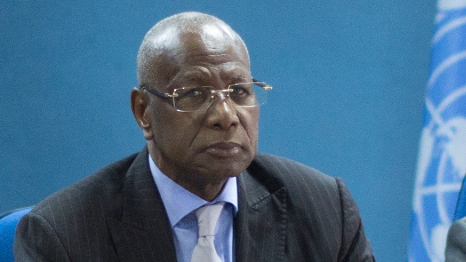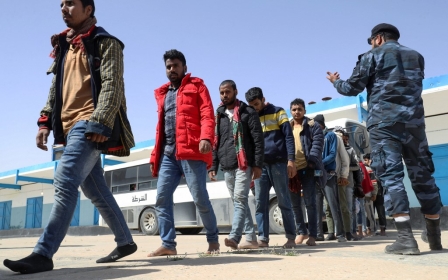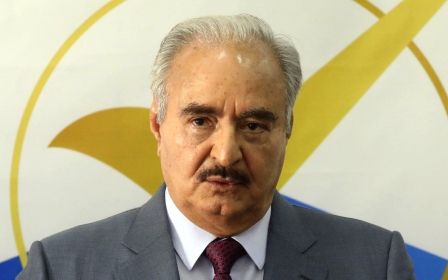UN chief to appoint former Senegalese minister as Libya special envoy

UN Secretary-General Antonio Guterres is planning to name a former Senegalese minister as special envoy for Libya, where he would lead the body's efforts to broker peace, according to a letter seen by Reuters.
In order for Guterres's choice, Abdoulaye Bathily, to be ratified, he would need consensus from the 15-member UN Security Council. If there are no objections, then Bathily's appointment will be approved on Friday evening.
Bathily is a former Senegalese minister, who since 2014 has been working with the UN and was head of its mission in Central Africa, and would succeed Jan Kubis, who stepped down in December.
In December, the UN chief appointed US diplomat Stephanie Williams, a former UN deputy special representative in Libya, as his special adviser, a job that does not require approval from the Security Council.
She left at the end of July. Since then, the mission has had no leader as Libyans continue to grapple with a constitutional and political crisis.
UN political chief Rosemary DiCarlo warned on Tuesday that the failure to resolve the crisis and hold elections posed a growing threat in the country, pointing to violent clashes a few days ago that killed more than 30 people.
The current standoff pits the UN-backed Government of National Unity, led by Prime Minister Abdul Hamid Dbeibah, against the administration of Fathi Bashagha, which is based in the east of the country.
Tensions have been brewing since December after the country failed to hold elections, with Dbeibah, who was selected in an interim capacity to lead a UN-backed political transition, insisting he would only hand over power to an elected government.
In response, Bashagha has spent months trying to install his government in Tripoli.
France's ambassador to the UN, Nicolas De Riviere, was asked at a news conference whether Dbeibah's opposition to Bathily would be a problem in trying to end Libya's political crisis.
De Riviere said the leadership of the UN mission for Libya over the past two years "has been chaotic" and it was "high time" for the UN to have someone to lead it "and to pick up the baton of the negotiations over Libya".
He said France fully supported the secretary-general's appointment of Bathily.
"I think it will be accepted," De Riviere said. "What's important now is to get to the next phase, and I think that all the parties in Libya will cooperate with him, and the sooner they do that the better."
Middle East Eye delivers independent and unrivalled coverage and analysis of the Middle East, North Africa and beyond. To learn more about republishing this content and the associated fees, please fill out this form. More about MEE can be found here.





